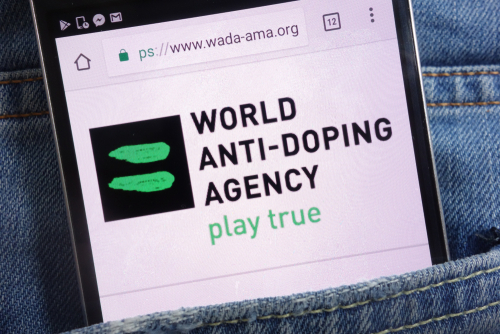Joint response by anti-doping organisations and national authorities to the trade of illegal doping substances
 Experts from anti-doping organisations and EU agencies gathered today for a conference in Budapest, the Sport Capital of Europe 2019, to strengthen their cooperation in fighting doping and the trade of illegal doping substances. The participants sent a powerful message to criminals all over the world by stressing the importance of international collaboration in stopping the supply and suppliers of doping substances. Today's conference, which was initiated and organised by the Hungarian Anti-doping Organisation (HUNADO), was attended by Eurojust, the EU's Judicial Cooperation Unit, the World Anti-Doping Agency (WADA), Europol, as well as National Anti-Doping Organisations (NADOs) and judicial and law enforcement authorities from central Europe.
Experts from anti-doping organisations and EU agencies gathered today for a conference in Budapest, the Sport Capital of Europe 2019, to strengthen their cooperation in fighting doping and the trade of illegal doping substances. The participants sent a powerful message to criminals all over the world by stressing the importance of international collaboration in stopping the supply and suppliers of doping substances. Today's conference, which was initiated and organised by the Hungarian Anti-doping Organisation (HUNADO), was attended by Eurojust, the EU's Judicial Cooperation Unit, the World Anti-Doping Agency (WADA), Europol, as well as National Anti-Doping Organisations (NADOs) and judicial and law enforcement authorities from central Europe.
It is undisputed that doping tests performed in accordance with WADA standards help ensure the enforcement of clean athletes' rights. However, to restrict doping, tests are not the only step to take. The road starts at halting the supply of doping substances and their suppliers. Several European countries recently introduced into their criminal law the separate criminal offence of trafficking prohibited performance-enhancing substances, due to their severe health hazards. Moreover, numerous European and overseas countries already penalise the use of such substances.
The production and trafficking of banned performance-enhancing substances has an international dimension. Therefore, it is essential that central European countries cooperate closely and effectively through their NADOs and judicial and law enforcement authorities by exchanging information on doping cases. Following the adoption of the International Convention against Doping in Sport by the United Nations Educational, Scientific and Cultural Organization (UNESCO) on 19 October 2015, NADOs and WADA, within the scope of their activities, have access to such information. Judicial and law enforcement authorities can use this information to advance their investigations and prosecutions of doping criminals.
Photo © Shutterstock
